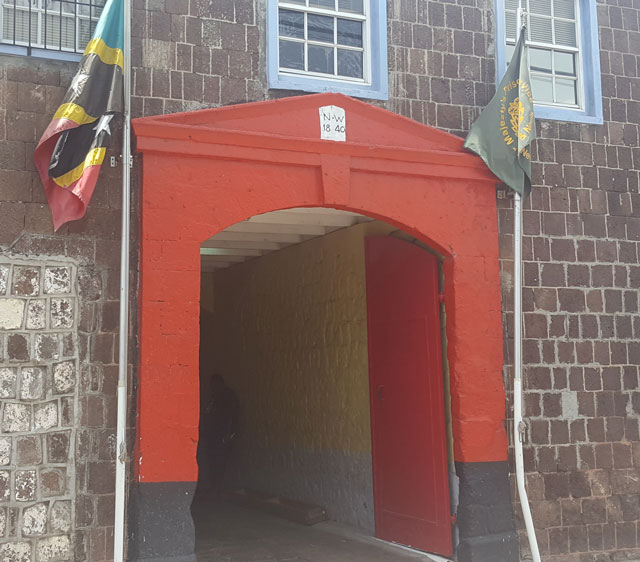Fifteen Inmates Complete HM Prison Substance Use Rehabilitation Program
The St. Kitts and Nevis National Council on Drug Abuse Prevention Secretariat celebrated a significant victory in its ongoing fight against substance abuse with the successful completion of the “Stages of Change Substance Use Program” at His Majesty’s Prison in Basseterre. Fifteen inmates graduated from the eight-week program, marking a pivotal moment in their personal journeys toward recovery and reintegration into society. The program, held from October 14th to December 2nd, 2024, culminated in a graduation ceremony on December 16th, recognizing the inmates’ dedication and progress. This initiative represents a crucial component of the Council’s broader strategy to combat substance misuse and its ripple effects on individuals, families, and the community, emphasizing the potential for rehabilitation and positive change within correctional settings.
The “Stages of Change Substance Use Program” provided a structured and supportive learning environment for the participants, guided by a team of experienced professionals. Ms. Ishelle Huggins, Drug Prevention Officer, Ms. Nigenda Walters, Drug Misuse Intervention Officer, and Ms. Shaneze Sam, Deputy Director of the New Horizons Juvenile Rehabilitation Centre and UWI-certified drug Prevention Specialist, collaborated to deliver a comprehensive curriculum designed to empower inmates to confront their substance use challenges and develop the skills necessary for sustained recovery. The program’s success is a testament to the collaborative efforts of the facilitators and the commitment of the participating inmates.
The program’s curriculum addressed a range of critical topics related to substance abuse and personal development. Participants explored the “Stages of Change” model, gaining a deeper understanding of the process of behavioral modification. Sessions debunked common “Myths & Misconceptions of Substance Use,” providing inmates with accurate information to make informed decisions. The program also focused on strengthening “Personal Values” as a foundation for positive change and fostering “Healthy Relationships” to build supportive social networks. Practical skills such as “Weighing Pros & Cons” of substance use, developing “Self-Control” mechanisms, and “Accomplishing Goals” were also emphasized, equipping participants with the tools to navigate future challenges and build a fulfilling life free from substance dependence.
The program’s impact on the participants was profound, as evidenced by the observations of the facilitators. Ms. Huggins commended the inmates’ inspiring commitment to the program, while Ms. Walters noted the remarkable transformation she witnessed throughout the eight weeks. Participants demonstrated a newfound ability to identify their personal triggers, develop coping strategies, and establish realistic goals for their future—essential skills for maintaining sobriety and successfully reintegrating into society. The program’s structure and content provided a supportive framework for personal growth, empowering participants to take ownership of their recovery journey.
The “Stages of Change Substance Use Program” is a testament to the National Council on Drug Abuse Prevention’s ongoing commitment to addressing substance misuse within the community. This year marked the fourth iteration of the program, highlighting its sustained impact and the Council’s dedication to providing ongoing support for individuals struggling with addiction. Director Mrs. Karimu Byron Caines reaffirmed the Council’s commitment to offering the program annually, recognizing its crucial role in rehabilitation and community well-being. This continued investment in evidence-based programs demonstrates the Council’s proactive approach to tackling substance abuse and its associated challenges.
The successful completion of the “Stages of Change Substance Use Program” represents a significant step forward for the fifteen graduating inmates and a beacon of hope for the broader community. By equipping individuals with the tools and support they need to overcome substance abuse, the program contributes to a safer and healthier St. Kitts and Nevis. The National Council on Drug Abuse Prevention’s dedication to providing these vital services underscores its commitment to fostering positive change and building a more resilient community, one individual at a time. The program’s continued success reinforces the importance of rehabilitation and the transformative power of providing individuals with the opportunity to rebuild their lives.
Share this content:












Post Comment